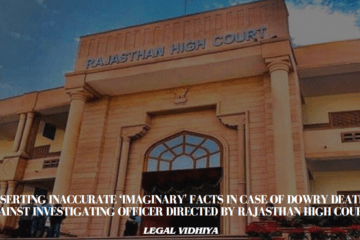
The 2022 Bill’s goal is to make unlawful religious conversion an offence with a three- to ten-year maximum sentence that is cognizable and non-bailable.
The Uttarakhand Freedom of Religion (Amendment) Bill, 2022 was approved by the Uttarakhand State Legislative Assembly on Tuesday with the goal of strengthening the current anti-conversion law.
The 2022 Bill’s aim is to make unlawful religious conversion an offence with a three- to ten-year maximum sentence that is cognizable and non-bailable.
For illegal conversion, a former jail sentence of 1 to 7 years was imposed.
The Uttarakhand Freedom of Religion Act, 2018, was amended by a bill which the State administration moved in the Assembly on the first day of the Winter Session. Minister Satpal Maharaj introduced the bill on the day.
The revision is required to “remove certain difficulties in the Act.” according to the bill’s introduction.
There are now more clauses in the defining Section, such as:
- “Mass Conversion” which means that under Section 3 of the Penal Code, conversion of two or more people is punished by 3–10 years in prison and a fine of ₹50,000;
- “Unlawful Religious Conversion” implies a conversion that does not follow the law of the country;
According to Section 9 of the Bill, a person must essentially notify a District Magistrate (DM) one month before and 60 days after converting.
If this is not done, the penalty is imprisonment for a minimum of six months and a maximum of three years.
A person was merely required to inform the DM prior to the conversion under the 2018 Act.
The Bill also includes victim compensation up to a maximum of ₹5 lakh, which must be paid by the culprit in addition to the ₹50,000 fine, Section 3(2) of the Bill imposes on the accused.
There was no provision for victim compensation in the 2018 Act.
With the new amendments, filing charges against someone alleged to be in violation of the Act’s provisions no longer requires the District Magistrate’s prior approval.
The Bill has also changed the penalties in situations where a religious priest conducting a purifying Sanskar (conversion ceremony) fails to notify the District Magistrate of such conversion one month in advance.
According to Section 8(2), the priest will face a sentence of at least one year in jail or it can go up to five years in imprisonment.
The 2018 Act mandated a six-month minimum sentence that could be increased to two years.
Written by: Lakshman Singh, 3rd Semester, B.B.A LL.B (Hons.), Shri Ramswaroop Memorial University, Lucknow




0 Comments